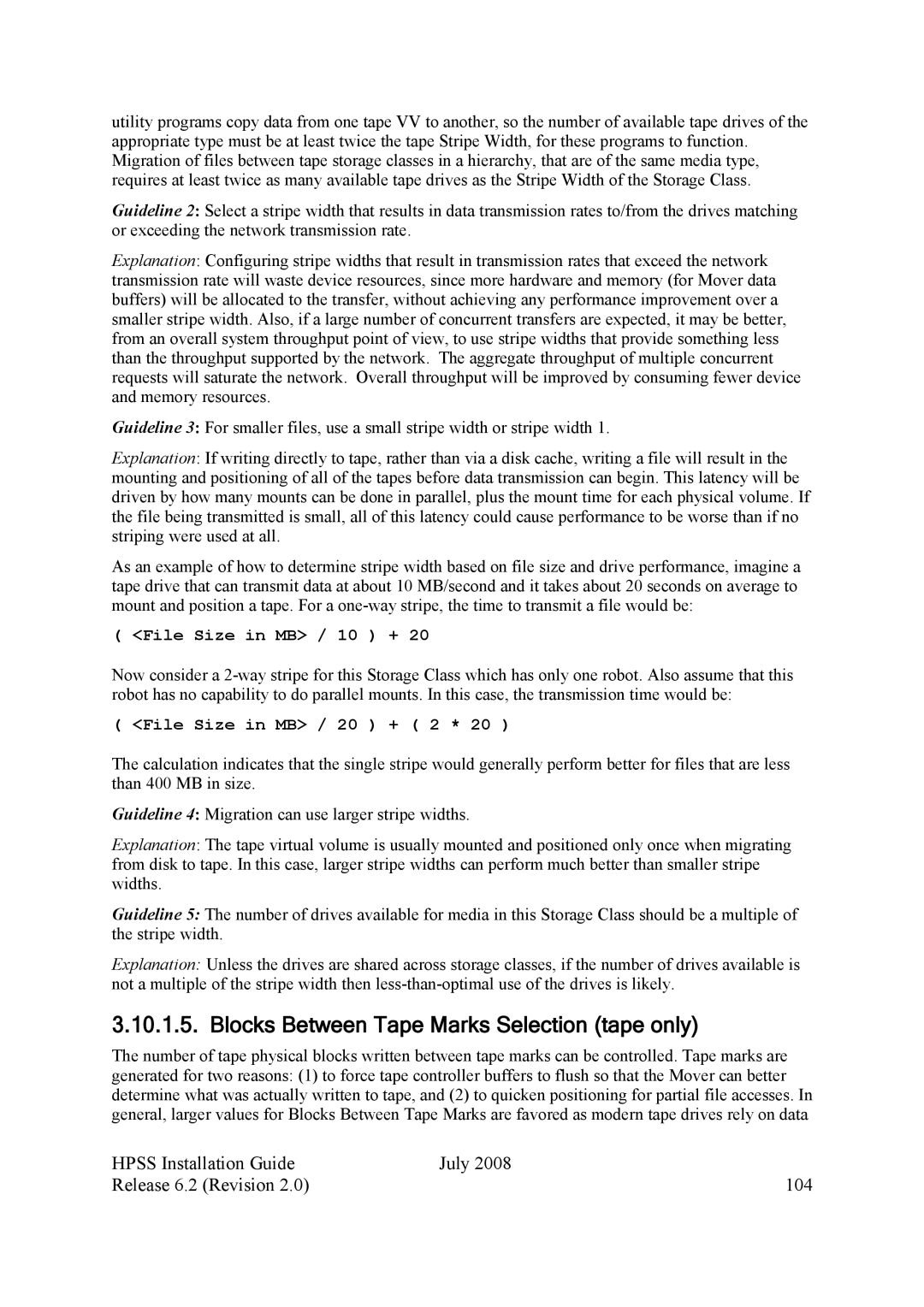utility programs copy data from one tape VV to another, so the number of available tape drives of the appropriate type must be at least twice the tape Stripe Width, for these programs to function. Migration of files between tape storage classes in a hierarchy, that are of the same media type, requires at least twice as many available tape drives as the Stripe Width of the Storage Class.
Guideline 2: Select a stripe width that results in data transmission rates to/from the drives matching or exceeding the network transmission rate.
Explanation: Configuring stripe widths that result in transmission rates that exceed the network transmission rate will waste device resources, since more hardware and memory (for Mover data buffers) will be allocated to the transfer, without achieving any performance improvement over a smaller stripe width. Also, if a large number of concurrent transfers are expected, it may be better, from an overall system throughput point of view, to use stripe widths that provide something less than the throughput supported by the network. The aggregate throughput of multiple concurrent requests will saturate the network. Overall throughput will be improved by consuming fewer device and memory resources.
Guideline 3: For smaller files, use a small stripe width or stripe width 1.
Explanation: If writing directly to tape, rather than via a disk cache, writing a file will result in the mounting and positioning of all of the tapes before data transmission can begin. This latency will be driven by how many mounts can be done in parallel, plus the mount time for each physical volume. If the file being transmitted is small, all of this latency could cause performance to be worse than if no striping were used at all.
As an example of how to determine stripe width based on file size and drive performance, imagine a tape drive that can transmit data at about 10 MB/second and it takes about 20 seconds on average to mount and position a tape. For a
( <File Size in MB> / 10 ) + 20
Now consider a
( <File Size in MB> / 20 ) + ( 2 * 20 )
The calculation indicates that the single stripe would generally perform better for files that are less than 400 MB in size.
Guideline 4: Migration can use larger stripe widths.
Explanation: The tape virtual volume is usually mounted and positioned only once when migrating from disk to tape. In this case, larger stripe widths can perform much better than smaller stripe widths.
Guideline 5: The number of drives available for media in this Storage Class should be a multiple of the stripe width.
Explanation: Unless the drives are shared across storage classes, if the number of drives available is not a multiple of the stripe width then
3.10.1.5. Blocks Between Tape Marks Selection (tape only)
The number of tape physical blocks written between tape marks can be controlled. Tape marks are generated for two reasons: (1) to force tape controller buffers to flush so that the Mover can better determine what was actually written to tape, and (2) to quicken positioning for partial file accesses. In general, larger values for Blocks Between Tape Marks are favored as modern tape drives rely on data
HPSS Installation Guide | July 2008 |
Release 6.2 (Revision 2.0) | 104 |
